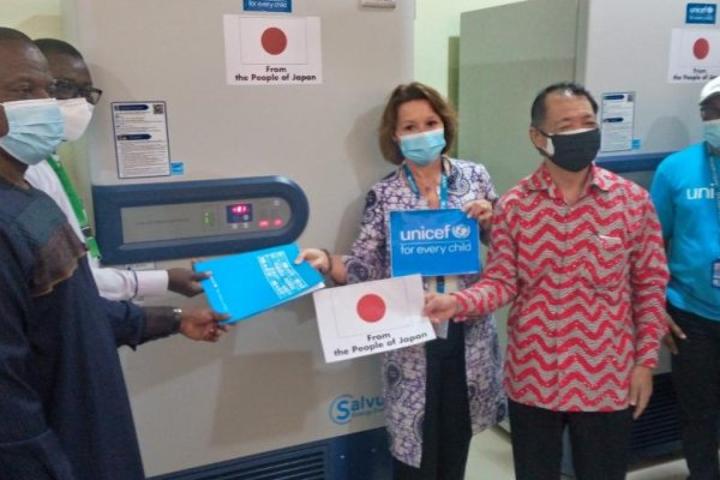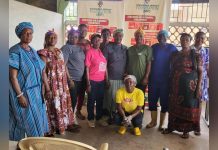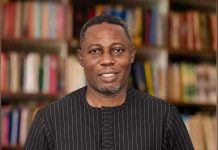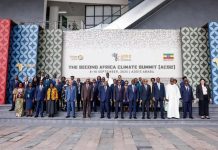Africa-Press – Ghana. Kumasi, Oct 30- Dr Kwame Amponsa-Achiano, Programmes Manager, Expanded Programme on Immunisation (EPI) at the Ghana Health Service, (GHS) has said Africans and Ghanaians in particular, should have no fears and hesitancy for vaccines including COVID-19 vaccines.
This, he said, was because the modern-day vaccination was an evolution of an old scarification approach, which aside the cultural purpose, was also a traditional healing method used by many tribes in Ghana.
The method involved placing superficial incisions on the skin using tools such as broken glass, knives and blades and through which concoctions were introduced into the body to treat convulsions, measles, pneumonia, stomach discomfort, and other ailments.
Dr Amponsa-Achiano in a presentation at a two-day workshop on COVID-19 reportage and misconceptions on vaccination, said just as people had confidence in scarification in the past as local remedy for ailments, they should have confidence in any of the five COVID-19 vaccines available in Ghana and not heed conspiracy theories that the vaccines would alter their DNA and cause infertility in women or men.
He attributed the saving of over three million lives of children from childhood killer diseases including poliomyelitis and measles annually, to vaccination saying, “all that a vaccine does is to train the soldiers in your body to be ready to fight a specific disease” insisting, “vaccines are not harmful.”
Dr Amponsa-Achiano walked the selected journalists drawn from across the country through the spectrum of COVID-19 vaccines and the formulation phases explaining, the record time discovery of vaccines for the pandemic was nothing untoward, but due to earlier experiences of coronaviruses and collaboration among world governments.
The EPI Programmes Manager called on the media to be ambassadors for the COVID-19 vaccination by supporting demand generation to ensure Ghanaians from 18 years get vaccinated to protect them against COVID-19 and its severe implications including death.
Mr George Sabblah, Head, Department of Safety Monitoring at Food and Drugs Authority (FDA), assured that the vaccines were safe for use disclosing, there had been no safety concerns so far with the vaccines.
He urged that in cases of “adverse events following immunization” which others would preferably call “side effects,” of the vaccines, it should be reported to the various health facilities or contact FDA’s online reporting platform for prompt investigations and actions.
Mr Sabblah said the highly-rated Authority “has a rigorous system for approval (Emergency Use Authorisation) and proactive safety monitoring for COVID-19 vaccines” and that “the benefits of COVID-19 vaccinations far exceed any risks the vaccines may pose.”
Dr Dennis Laryea, acting Head, Disease Surveillance Department, GHS, who spoke on understanding the origins of the pandemic, Ghana’s case count and response plan, observed that “people have not gotten the message on the appropriateness of protocols” saying, the appropriate use of face masks and hand hygiene among others ought to be encouraged warning, “we must not let our guards down.”
Mr Al-hassan Hudi, Communication for Development Consultant, United Nations Children’s Fund (UNICEF), tasked journalists to do more in areas of managing misinformation and rumours in order to give the right education to the public on COVID-19 vaccines, to combat vaccine hesitancy and encourage confidence in the vaccination, the most successful and cost-effective public health interventions in prevention and containment of the disease.
Madam Offeibea Baddoo, UNICEF Communications Officer, asked journalists to be more sensitive in their reportage on children in a way that did not affect their overall development, saying the outbreak had impacted on children negatively in areas such as health and nutrition, social protection and education.
The GHS/UNICEF workshop also saw presentations from representatives of Ministry of Information, Ghana Facts, Public Relations Unit and Health Promotion Division of GHS, commending the media for their outstanding job since the outbreak while asking them to do more.
Dr Ike Tandoh, corporate anthropologist and integrated marketing communications scholar, told the journalists that it was time they led the advocacy for desired results.
For More News And Analysis About Ghana Follow Africa-Press







